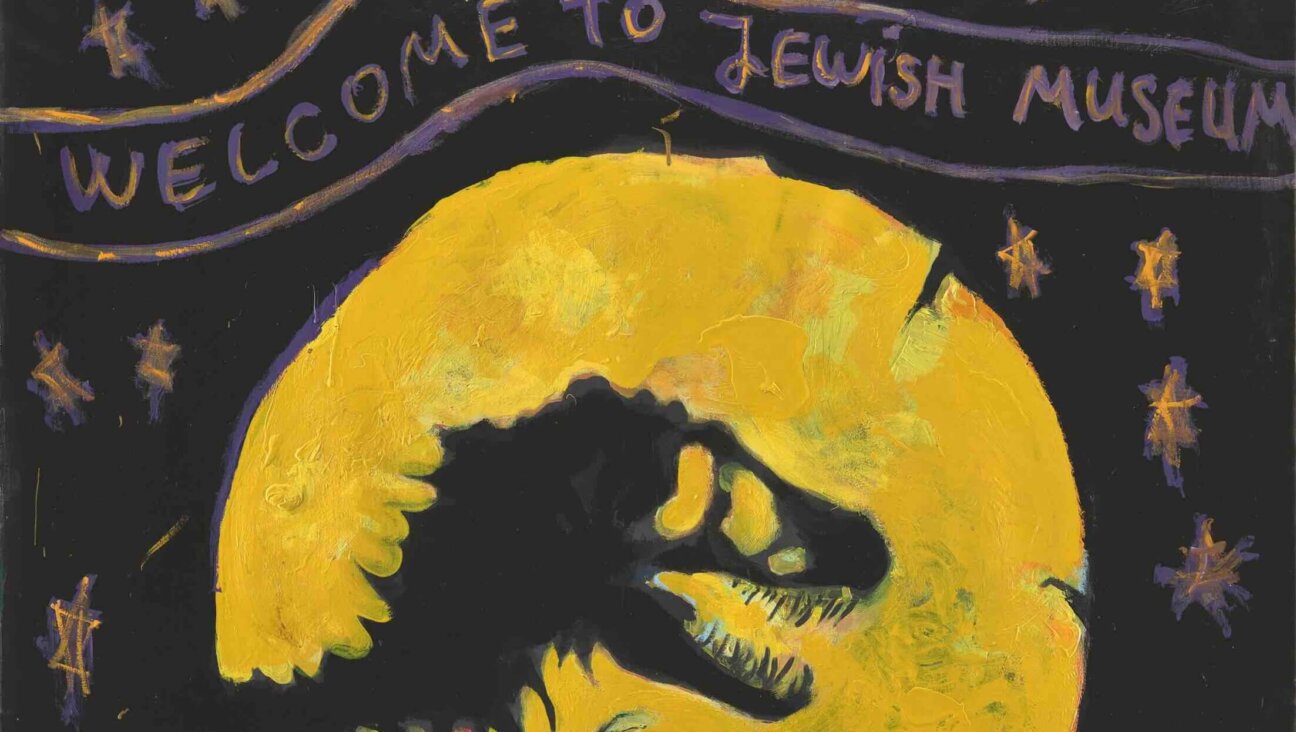Fronting and Assimilating to a Gut Yontif
The onset of 5770 on Friday night September 18 posed a problem in Jewish etiquette. Normally, at the end of a kabbalat Shabbat, or Sabbath eve service, the members of the congregation turn to each other, shake hands (or hug and kiss, as is the custom in some synagogues in the United States today), and greet each other with either “Shabbat shalom,” in Hebrew, or — as is more common in Orthodox synagogues — “Gut shabes” in Yiddish. (It is noteworthy that even in American Reform synagogues, where the use of English in place of Hebrew has sometimes gone very far, the English “Good Sabbath” never replaced these two formulas.)
Similarly, after the evening service ushering in a holiday such as Rosh Hashanah, one says either “Ḥag same’aḥ (“Happy holiday”) in Hebrew or “Gut yontif” (“Good holiday”) in Yiddish. Yet what does one say when, as has happened this year, the beginning of the holiday is also the beginning of a Sabbath? Just one of the two greetings? Both? And if so, which comes first?
The answer, as many of you already know, is both, with “Shabbat shalom” or “Gut shabes” first, and “Ḥag same’aḥ” or “Gut yontif” second. This is in keeping with a fact that Yiddishologist Michael Wex notes in his book “Just Say Nu”: “These greetings are based on a rigid pecking order of holidays, in which Saturday trumps everything except for Yom Kippur.”
On the other hand, on the first Saturday night of 5770, when the Sabbath is ushered out and the second day of Rosh Hashanah begins, one says first “Ḥag same’aḥ and then “Shavu’a tov” (“A good week”), the customary Hebrew greeting at the Sabbath’s end — or else in Yiddish, “*Gut yontif, gute vokh.”
“Gut yontif” is a curious expression. The Yiddish word yontif, “holiday,” comes from the two Hebrew words yom tov, literally, “a good day.” A yom tov in Hebrew usage is not just any Jewish holiday. It is one in which, much like on the Sabbath, there are restrictions on work, travel, handling money, lighting fire or using electricity, cooking and so on, as opposed to holidays to which such rules do not apply. Thus, neither Hanukkah nor Purim is considered a yom tov, nor are the intermediate days, known as ḥol ha-mo’ed (literally, “the nonsacred part of the festivity”), of the weeklong holidays of Sukkot and Passover. One does not customarily say “Ḥag same’aḥ or “Gut yontif” on them, and the Hebrew greeting “Mo’adim l’simḥa, “May [your] festivities be joyous,” or in the Yiddish, “A gutn moyed” may be substituted.
Hebrew yom tov became Yiddish yontif by means of three separate linguistic processes known as fronting, assimilation and de-voicing. In the first of these, a vowel formed in the back of the mouth, the Hebrew “o,” moved to the front of it. In the second, the “m” of yom turned into an “n” because of its proximity to the “t” of tov. (If you articulate an “n” and a “t,” you will see that your mouth and tongue are set in the exact same position for both, the only difference being that the “n” is realized by expelling air through the nose, and the “t” by expelling it through parted teeth.) In the third, the voiced consonant “v” relaxed into the unvoiced “f.” (Here, too, we are talking about two sounds whose production is the same, except that the vocal cords are vibrated in one and not in the other.)
But this led to a strange result. Yom tov, as we have said, means “good day” in Hebrew, in which the greeting “Yom tov tov” (literally, “A good good day”) could never have developed, because it would have sounded comically redundant. And indeed, “Gut yom tov” would have sounded the same to any Yiddish speaker who knew the meaning of the Hebrew phrase. Yet when yom tov changed to yontif, the connection between the two was sufficiently obscured for the redundancy of “Gut yontif” to cease to be apparent, so that the expression became the standard Yiddish holiday greeting.
Ironically, one Yiddish greeting that is not particularly distinctive on Rosh Hashanah is “A gut yor,” “A good year,” which is used year-round. “A gut yor,” or just “Gut yor,” is a regular response in Yiddish to a wide variety of other greetings, such “Gut morgn” (“Good morning”), “Gut ovnt” (“Good evening”), etc. (Hence the Yiddish proverb “Vos far a gut morgn, aza gut yor, “The kind of ‘good morning’ [with which you greet someone] is the kind of ‘good year’ [that you’ll get in reply]” — that is, you’ll be treated by others the way you treat them.) What is said only on Rosh Hashanah, of course, is “Shoneh toyveh,” which means “A good year” in Hebrew (in the Israeli pronunciation of which is “Sha-NAH to-VAH”), or — if you wish to be more formal and festive — “Leshoneh toyveh tikoseyvu vetekhoseymu” (in Hebrew, “L’shana tova tikatevu veteḥatemu”), “May you be inscribed and sealed [in the Book of Life] for a good year.”
Gut shabes, gut yontif to you all!
Questions for Philologos can be sent to [email protected].





















